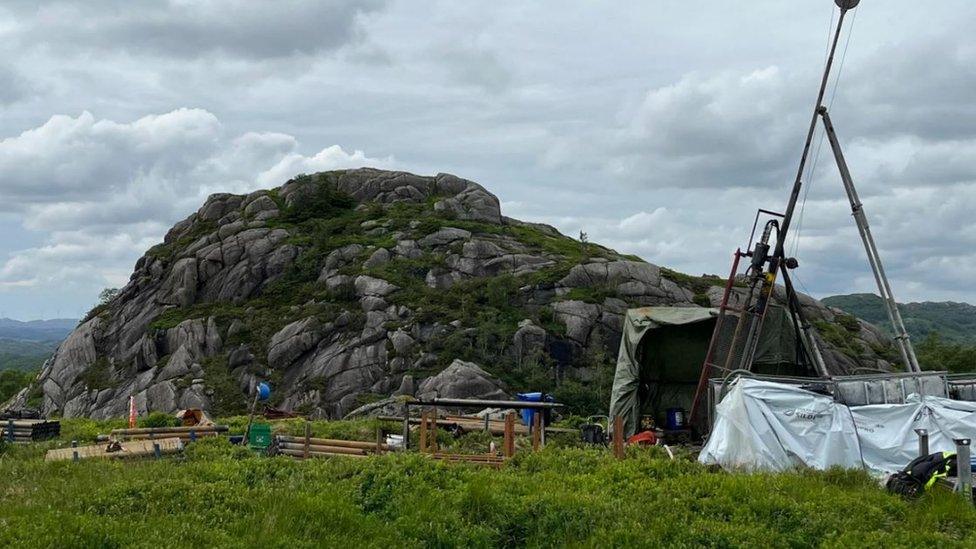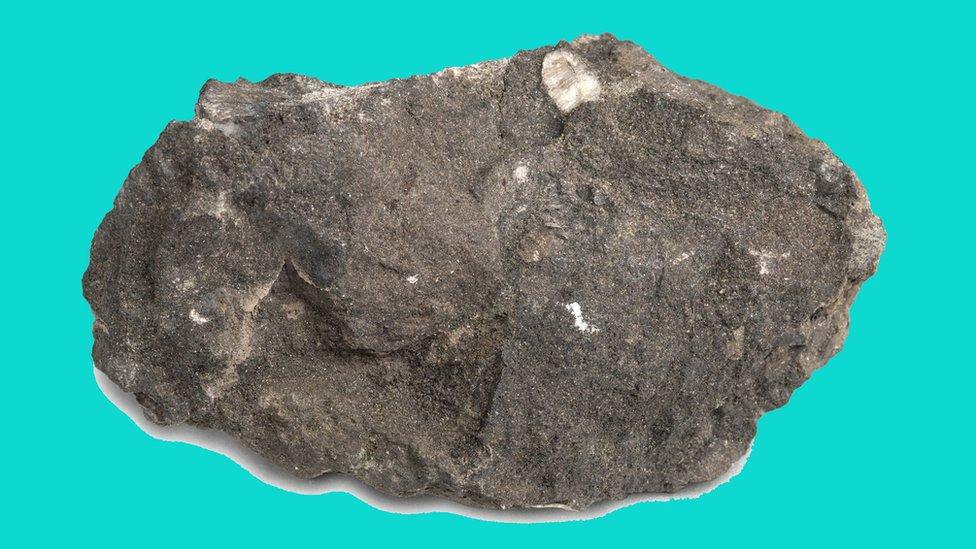Phosphate discovery in Norway could power electric cars for next 50 years
- Published
- comments

Norge mining as discovered a huge deposit of phosphate rock in Norway
A huge deposit of a valuable mineral called phosphate, which can be used to power electric cars and solar panels, has been discovered in Norway.
The mining company that found it, Norge Mining, say there is up to 70 billion tonnes of phosphorus present - enough to meet demand for the next 50 years.
Phosphorous is on the European Union's list of minerals of importance to the economy.
Before this discovery the largest amount of phosphate rock - around 50 billion tonnes - was found in Western Sahara on the northwest coast of Africa.
According to US Geological Survey estimates, China has 3.2 billion tonnes of phosphate and Egypt 2.8 billion tonnes.
What is phosphorus?

Phosphorus is a mineral which comes from phosphate rock.
It is a finite resource which means there is only a certain amount in the world and it will eventually run out.
Around 90% of mined phosphate is used to produce fertiliser for the agriculture industry.
There is a worry that reliance on phosphate, which is running out around the world, could lead to food shortages.
What are the environmental issues with phosphate?
There is also concern about the environmental impact as phosphate fertiliser which runs off land in rainwater has caused algae blooms in rivers.
Phosphorus has also been found to be an essential for solar panels, computer chips and lithium-iron phosphate batteries which are used in electric cars.
The global economy uses around 50 million tonnes of phosphorus each year.
Although electric cars and solar panels could be beneficial to the environment, refining phosphorus and extracting the material can be a heavily polluting process.
Norge mining has said they will use carbon capture and storage to reduce the carbon emissions of the refining process.
The deposit also contains vanadium and titanium which are also classed as critical raw materials by the EU.
